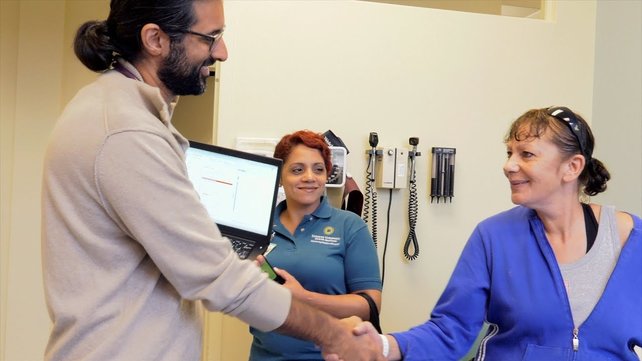Helping Ease Transition Back Into the Community
Koren Carbuccia accompanies Lisa Vazquez on a medical appointment at the Rhode Island Hospital Center for Primary Care on Chapman Street. In this video, you'll meet both up close and out in the community together as Carbuccia, who once served time, provides hands-on support to Vazquez, who has been in and out of prison.

